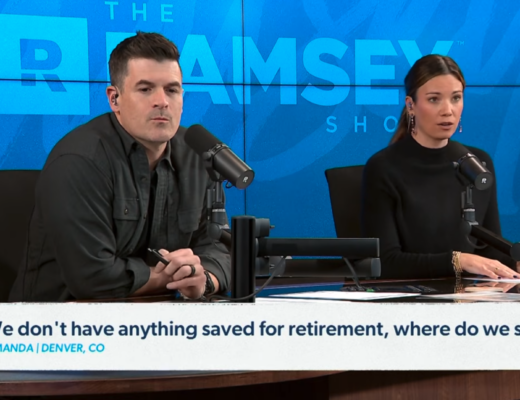Dealing with debt collection and debt collectors can be one of the most stressful experiences in personal finance. I’ve watched countless people make costly mistakes when facing collection calls, often prioritizing these debts over essential needs, such as food and utilities. After reviewing Dave Ramsey’s approach to handling debt collection and collectors, I’m convinced that his strategy offers a much-needed reality check for anyone overwhelmed by collection notices.
The foundation of Ramsey’s advice is refreshingly straightforward: if you legitimately owe money and have the funds available, pay what you owe. This isn’t just about avoiding collection calls—it’s about removing the mental burden that comes with carrying unnecessary debt. As he points out, holding onto money you owe while having the means to pay just creates needless stress.
But what happens when you genuinely can’t pay? This is where Ramsey’s insights become truly valuable.
Understanding the Collection Game
Most companies would rather receive something than nothing. If you’re truly broke, debt settlement becomes a viable option. Ramsey explains that credit card companies often sell unpaid debts to collection agencies for around five cents on the dollar, meaning you can potentially settle for about 20 cents on the dollar.
What struck me most was Ramsey’s breakdown of how collection agencies operate. They deliberately use emotional manipulation to achieve their goals. Their tactics target two specific emotions:
- Fear (“We’re going to sue you!”)
- Anger (insulting your character or family)
When either emotion takes over, your critical thinking shuts down. This emotional hijacking is how collectors convince people to prioritize old debts over essential needs like feeding their children or keeping the lights on.
The Collection Agency Spectrum
Not all collection agencies operate the same way. Ramsey identifies a spectrum:
- Local collection agencies — Often, reasonable people just trying to collect legitimate debts
- Credit card collectors – According to Ramsey, the “worst of the worst” who regularly break federal laws
I found his personal story about American Express particularly revealing. Forty years ago, a collector called his wife and asked why she would “stay with a man that wouldn’t pay his bills.” This manipulation worked—Ramsey became so angry that he immediately paid the $1,164 debt. The collector won that round, but Ramsey learned a valuable lesson about the psychological warfare of debt collection.
“When they would call, I would just start laughing at them and just start messing with them… So, here’s what you’re going to get: Nothing. Nothing, honey. Call back someday.”
Practical Strategies for Dealing with Collectors
After reviewing Ramsey’s advice, I’ve identified these key strategies for anyone facing collection calls:
- Never let collectors access your bank account – They may clean you out completely
- Settle for lump sums only – Never agree to payment plans with collectors
- Aim for 10-25% of the original debt – Most collectors buy debt for pennies on the dollar
- Get everything in writing – Before paying anything, get written confirmation that your payment settles the debt in full
What makes this approach work is recognizing the collection process for what it is—a game where emotional manipulation is the primary strategy. By staying calm and treating these interactions as business negotiations rather than moral judgments, you regain control.
Maintaining Perspective
The most important takeaway from Ramsey’s advice is maintaining proper financial priorities. No matter how aggressive collectors become, your hierarchy of needs should remain:
- Food for your family
- Utilities and shelter
- Transportation to work
- Current obligations
- Past debts
Collection agencies want to jump to the front of this line through intimidation. Don’t let them.
I’ve seen this advice transform how people handle financial stress. By understanding the collection game, you can make rational decisions based on your actual financial situation rather than emotional reactions to collection tactics.
The next time a collector calls, remember: they’re playing a game they’ve mastered over thousands of calls. Your best defense is keeping your emotions in check and understanding exactly how much power they really have—which is far less than they want you to believe.
Frequently Asked Questions
Q: Can debt collectors actually sue me if I don’t pay?
While collectors technically can sue you, Ramsey points out they rarely do because it’s not cost-effective for them. If they sue, there’s a high probability you might file for bankruptcy, resulting in them getting nothing. Their threats of legal action are typically empty attempts to scare you into paying.
Q: What’s the best way to negotiate a settlement with collectors?
Always negotiate a lump-sum settlement rather than a payment plan. Aim for 10-25% of the original debt amount, and never give collectors electronic access to your bank accounts. Most importantly, get any settlement agreement in writing before sending any money.
Q: Should I prioritize paying off old debts over current bills?
No. Your financial priorities should always be: food, utilities, shelter, transportation to work, and current obligations. Old debts come last. Collectors want to manipulate you into putting them first, but doing so can jeopardize your family’s basic needs.
Q: How should I respond when collectors use aggressive or manipulative tactics?
Recognize that collectors deliberately try to trigger fear or anger to cloud your judgment. When you feel these emotions rising, take a step back. Don’t engage emotionally. Instead, remain calm, state what you can realistically do (if anything), and end the conversation if they become abusive. Remember, you can always hang up the phone.







